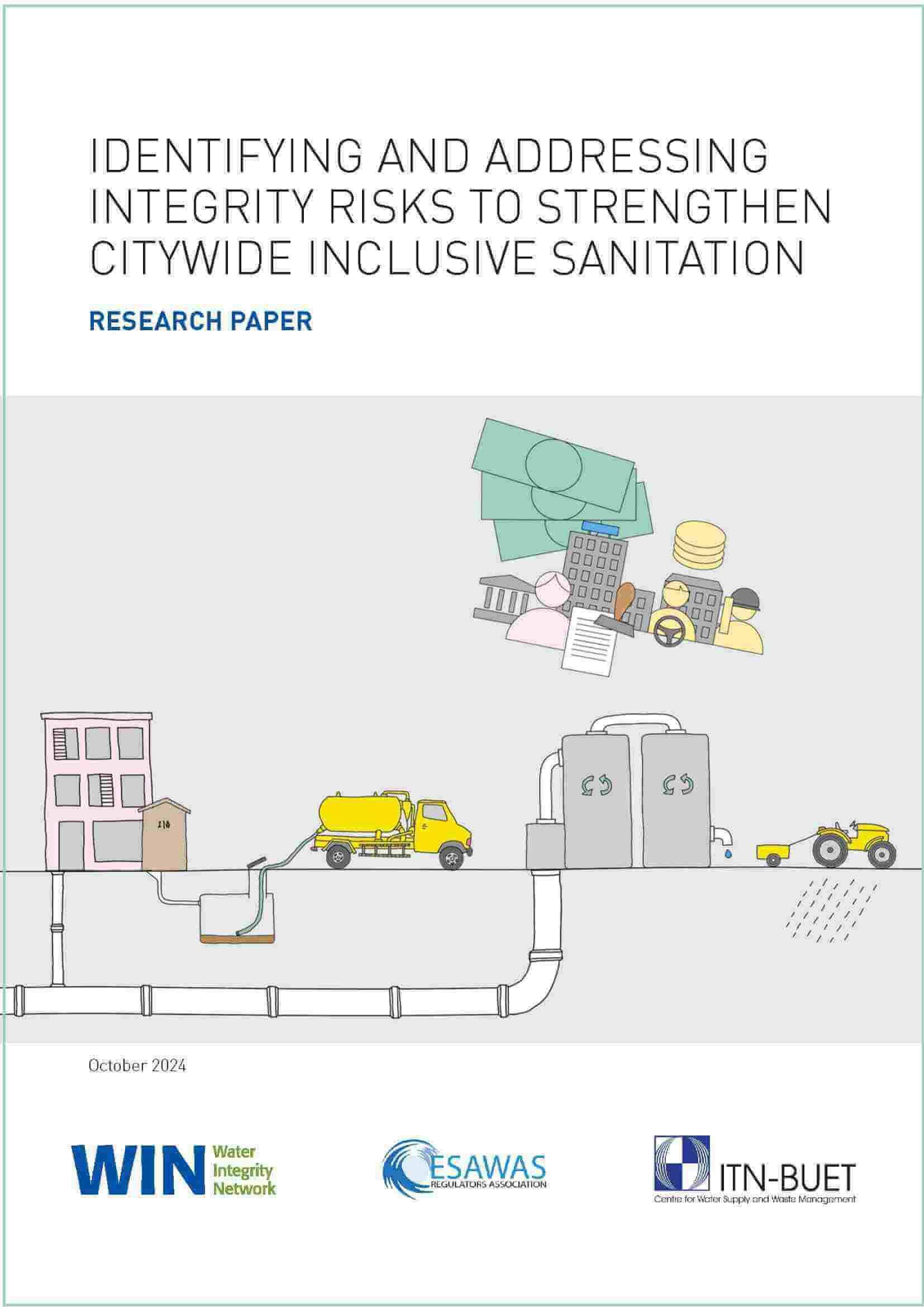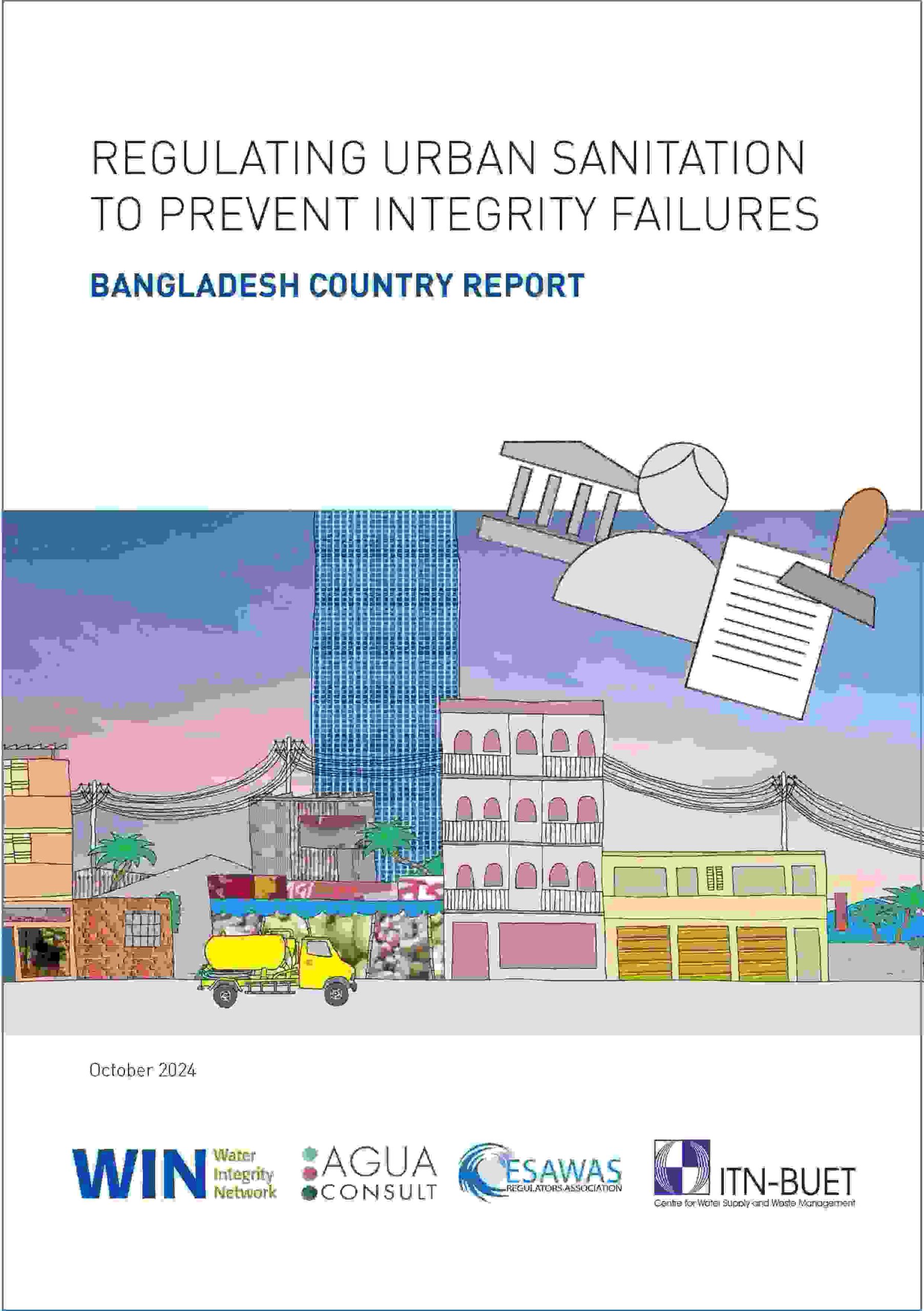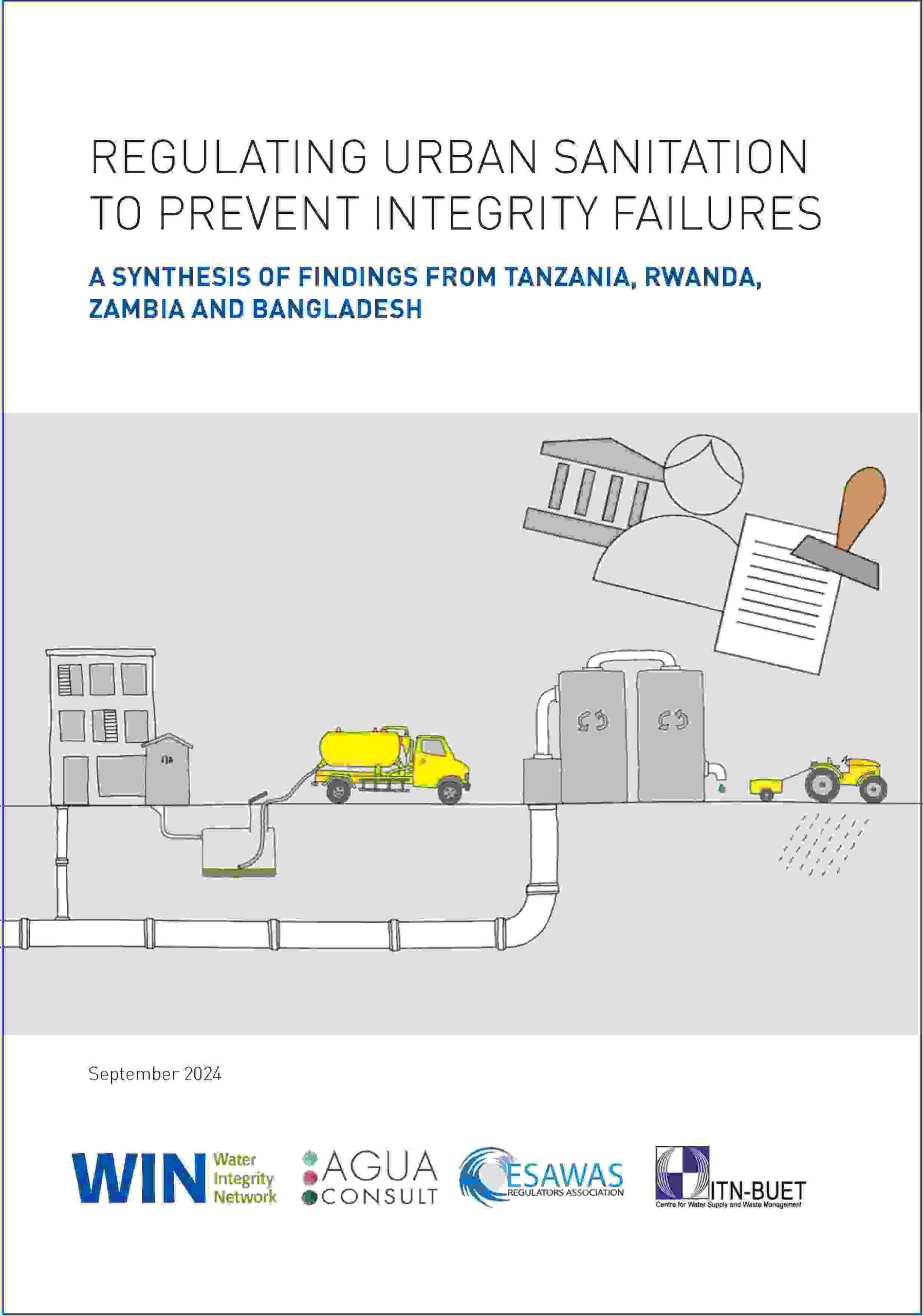Citywide inclusive sanitation (CWIS) aims to address the total sanitation needs of city residents. Unlike usual urban sanitation approaches, it focuses not only on piped sewerage systems but looks at different systems (sewered and non-sewered) and suppliers (public, households, private, and informal vendors) that can ensure service throughout the city. In many cases, city-level integrity failures hinder the expansion of sanitation services to all, even in CWIS approaches. These failures are often misunderstood or ignored yet they weaken service delivery, hamper the upgrading of infrastructure, erode public and household health, and deepen the oppression of women. The Water Integrity Network (WIN) is collaborating with the Eastern and Southern African Water and Sanitation Regulatory Association (ESAWAS), the Department of Public Health and Engineering, Bangladesh (DPHE), and the International Training Network Centre of Bangladesh University of Engineering and Technology (ITN-BUET) to better understand these integrity issues and the measures needed and effective in addressing them. Special attention is being given to the role of regulators and regulatory mechanisms. The aim is improve CWIS implementation. Following initial research on integrity risks and tools across the sanitation value chain (this report), a methodology was developed for de jure and de facto assessments of regulatory frameworks for sanitation with a focus on integrity. This methodology has been used in four countries to date: Bangladesh, Rwanda, Tanzania, and Zambia.
Related Resources
Regulating Urban Sanitation to Prevent Integrity Failures (Bangladesh Country Report)
This report focuses on the steps taken to regulate the urban sanitation sub-sector in Bangladesh and the integrity risks and failures that persist. The effective regulation of the urban sanitation sub-sector is vital in ensuring high-quality, reliable and equitable services and accelerating progress towards universal coverage.
Publisher(s): AGUA Consult, ESAWAS, ITN-BUET, WIN
2024
Regulating Urban Sanitation to Prevent Integrity Failures
The synthesis report, “Regulating Urban Sanitation to Prevent Integrity Failures,” focuses on addressing integrity challenges in Citywide Inclusive Sanitation (CWIS). CWIS aims to meet the comprehensive sanitation needs of all city residents by integrating diverse systems (sewered and non-sewered) and providers (public, private, household, and informal vendors).
Publisher(s): AGUA Consult, ESAWAS, ITN-BUET, WIN
October, 2024




